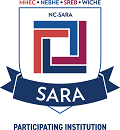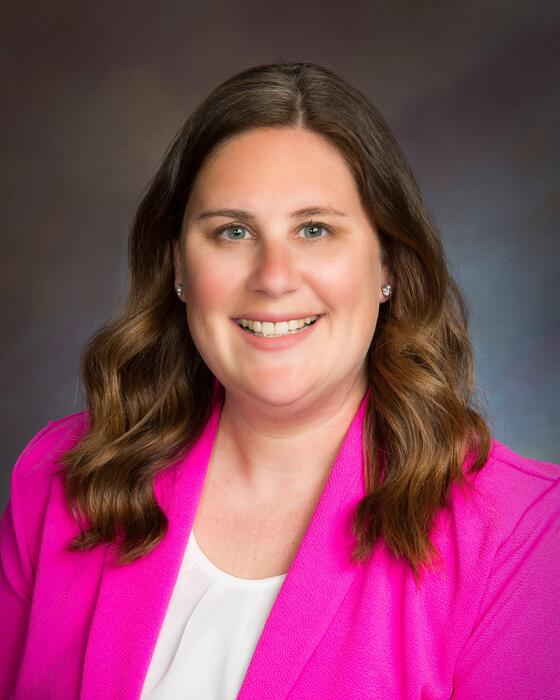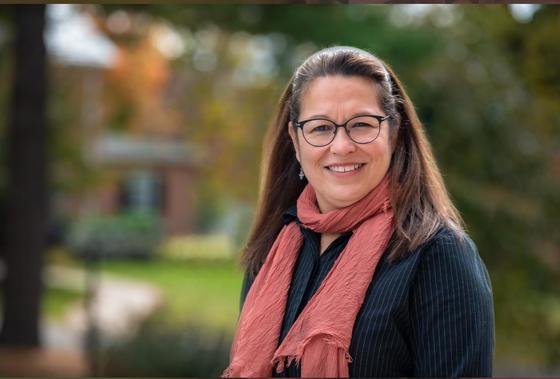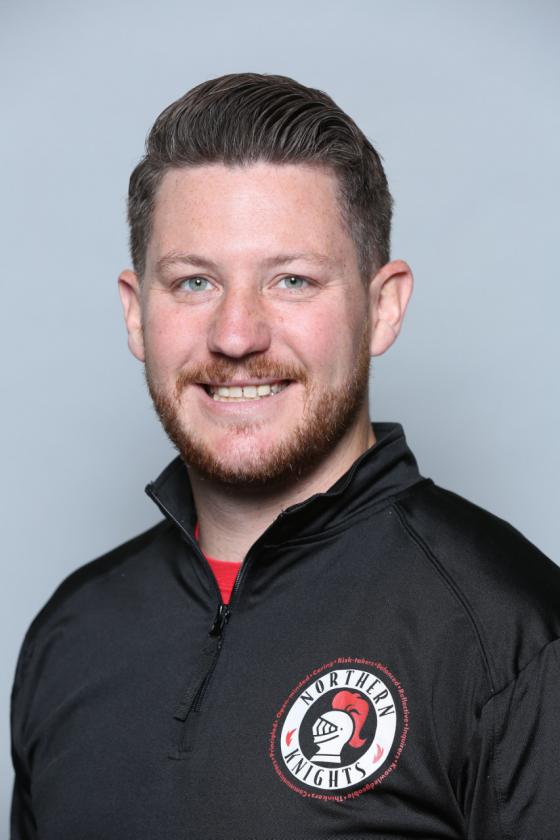
About this Program
The Curriculum and Instruction (C&I) program is designed to enrich the certified teacher’s knowledge of research-based teaching and learning in the context of the profession’s shifting landscape. Evening and summer classes make it possible for students to pursue the degree while continuing to teach, thereby strengthening the program's theory-to-practice approach.
Program Overview
Tuition & Fees
Funding opportunities
National Board Certification Prep Program
Relevant, Credible, Online
The C&I program offers a fully online model, purposefully designed to deliver high-quality learning experiences while accommodating the busy schedule of teaching professionals. Online classes provide students with flexibility and the convenience of working from home, while still allowing students to have rich conversations about teaching and learning. Our small class sizes and discussion-based courses encourage high levels of engagement. The program culminates in a final capstone research project based on a student's unique interests and learning goals.
Hood’s education faculty and adjunct instructors are professional educators who work in the very fields that they teach. They know, from everyday experience in local schools, how standards, curriculum and assessment in today's diverse classrooms affect teaching and learning across all disciplines. They understand what effective inquiry-based learning, differentiation and personalized learning look like in high-performing classrooms. As a direct result, students have the advantage of relevant course content that puts current theory into practice.
Unique Concentrations, Small Class Sizes
The C&I program offers concentrations in elementary education, secondary education, elementary school science and mathematics, and special education. Students advance through the program, taking myriad courses that delve into cognitive-based teaching learning and assessment. The range of courses focus on current best practices, emerging issues, equity and equality. Small classes mean individual support and meaningful opportunities for collaborative work. Through the online format, students tap into technology as a blended learning tool.
The Hood Education Department is recognized by the Maryland State Department of Education as an approved Educator Preparation Program provider.
Student & Alumni Testimonials
"I was drawn to Hood College’s grad school program because of their blended learning environment. I was very interested in an on campus graduate school experience, where I would still have connections with my departmental advisors and professors as opposed to learning completely online." - Joy Nugent, Curriculum & Instruction M.S. '20
Please note the Curriculum and Instruction master's program is not open to F1 students.

Hood College participates in the State Authorization Reciprocity Agreements.
Degrees Offered
- MS
Are you ready to go further?
For students applying to the curriculum and instruction program, please submit the following to the Graduate School:
- Complete the online application.
- Submit one copy of official transcripts from the institution where the highest degree was conferred.
- Write a short essay (approx. 500 words) describing how you anticipate Hood College’s curriculum and instruction graduate program will benefit you and your professional goals.
- Submit a copy of your teaching certificate.
Once these documents have been submitted to the Graduate School, the applicant will interview with the Program Director after which a decision for admittance into the curriculum and instruction graduate program will be made.
An applicant to the graduate program in curriculum and instruction must already hold teacher certification. This program does not issue initial teacher certification.
Transfer credit policy for admitted students
Students may transfer a maximum of 6 graduate credits from an external, accredited institution, or another Hood graduate program prior to the first semester of study in the current program. Please review the full graduate transfer credit policy in the College catalog.
Professional Education Core Courses
| EDUC 502 | Technology for Teaching, Learning & Leadership | 3.0 |
| EDUC 577 | Introduction to Educational Research | 3.0 |
| EDUC 581 | Research-Based Teaching, Learning & Assessment | 3.0 |
| EDUC 582 | Educational Philosophy in a Diverse Society | 3.0 |
| Total Credit Hours: | 12.0 | |
Vanguard teachers enrolled in the program may take EDUC 599V1 in lieu of EDUC 502.
Foundation Courses (12 credits):
In addition to the four professional education core courses for the M.S. degree, students must complete four elementary education foundation courses (12 credits):
| EDUC 533 | Effective Home-School Interaction: Research & Practice | 3.0 |
| EDUC 534 | Current Issues in Early Childhood & Elementary Education | 3.0 |
| EDUC 561 | Teaching Diverse Learners in an Inclusive Setting | 3.0 |
| EDUC 583 | Principles of Curriculum Development & Appraisal | 3.0 |
| Total Credit Hours: | 12.0 | |
Content Electives (9 credits)
In addition to the professional education core and foundation courses, the candidate must select three elective courses from different curriculum areas. One must be taken in reading. Substitutions are permitted with approval by the program director or academic advisor. (9 credits)
Reading
| EDUC 511 | Children's Literature | 3.0 |
| EDUC 517 | Materials for Teaching Reading: Instruction & Methods | 3.0 |
| EDUC 518 | Reading Instruction: Elementary | 3.0 |
| EDUC 520 | Reading Diagnosis | 3.0 |
| EDUC 521 | Contemporary Issues in the Teaching of Reading | 3.0 |
| EDUC 535 | Integrating the Elementary Curriculum through Language Arts | 3.0 |
| EDUC 599LETRS1 | LETRS Word Recognition: Units 1 & 2 | 3.0 |
| EDUC 599LETRS2 | LETRS Word Recognition: Units 3 & 4 | 3.0 |
Mathematics/STEM
| EDMA 530 | Mathematics Education Leadership I | 3.0 |
| EDUC 530 | K-12 Blended Learning | 3.0 |
| EDUC 540 | Modern Science Methods | 3.0 |
| EDUC 545 | Modern Mathematics Methods | 3.0 |
| EDUC 546 | The Teaching of Numbers,Operations & Algebraic Thinking in Elementary & Middle School | 3.0 |
| EDUC 547 | The Teaching of Geometry & Measurement in Elementary & Middle School | 3.0 |
Special Populations
| EDUC 500 | Methods for Teaching Multilingual Learners | 3.0 |
| EDUC 574 | Curriculum & Methods in Inclusive Classrooms: English Language Arts & Social Studies | 3.0 |
| EDUC 576 | Curriculum & Methods in Inclusive Classrooms: Math and Science | 3.0 |
Capstone (3 credits):
| EDUC 597A | Part one of the capstone research project - offered Fall semester only | 3.0 |
| EDUC 597B | Part two of the capstone research project - offered Spring semester only | 3.0 |
Professional Education Core Courses
| EDUC 502 | Technology for Teaching, Learning & Leadership | 3.0 |
| EDUC 577 | Introduction to Educational Research | 3.0 |
| EDUC 581 | Research-Based Teaching, Learning & Assessment | 3.0 |
| EDUC 582 | Educational Philosophy in a Diverse Society | 3.0 |
| Total Credit Hours: | 12.0 | |
Foundation Courses (12 credits):
In addition to the four professional education core courses for the M.S. degree, the candidate must complete four elementary school science and mathematics foundation courses (12 credits):
| EDUC 540 | Modern Science Methods | 3.0 |
| EDUC 545 | Modern Mathematics Methods | 3.0 |
| EDUC 576 | Curriculum & Methods in Inclusive Classrooms: Math and Science | 3.0 |
| EDUC 583 | Principles of Curriculum Development & Appraisal | 3.0 |
| Total Credit Hours: | 12.0 | |
Content Electives (9 credits):
In addition to the professional education and foundation courses, the candidate must select three courses from different content and topic areas, either from the science or mathematics disciplines with the approval of the adviser, or from the following education courses (9 credits).
| EDUC 500 | Methods for Teaching Multilingual Learners | 3.0 |
| EDUC 530 | K-12 Blended Learning | 3.0 |
| EDUC 539 | National Board Certification Support | 3.0 |
| EDUC 542 | Topics in Elementary Physical & Earth Science | 3.0 |
| EDUC 544 | Topics in Elementary Life Science | 3.0 |
| EDUC 546 | The Teaching of Numbers, Operations & Algebraic Thinking in Elementary & Middle School | 3.0 |
| EDUC 547 | The Teaching of Geometry & Measurement in Elementary & Middle School | 3.0 |
Capstone (3 credits):
| EDUC 597A | Part one of the capstone research project - offered Fall semester only | 3.0 |
| EDUC 597B | Part two of the capstone research project - offered Spring semester only | 3.0 |
Professional Education Core Courses
| EDUC 502 | Technology for Teaching, Learning & Leadership | 3.0 |
| EDUC 577 | Introduction to Educational Research | 3.0 |
| EDUC 581 | Research-Based Teaching, Learning & Assessment | 3.0 |
| EDUC 582 | Educational Philosophy in a Diverse Society | 3.0 |
| Total Credit Hours: | 12.0 | |
Foundation Courses (9 credits):
In addition to the four professional education core courses for the M.S. degree, students must select three secondary foundation courses (9 credits):
| EDUC 561 | Teaching Diverse Learners in an Inclusive Setting | 3.0 |
| EDUC 565 | Classroom Organization & Management in Special Education | 3.0 |
| EDUC 583 | Principles of Curriculum Development & Appraisal | 3.0 |
| Total Credit Hours: | 9.0 | |
Content Electives (12 credits):
In addition to the professional education and foundation courses, candidates must select four courses from professional and content areas that form a coherent unit of study within the secondary teaching areas. These 500-level courses may be selected from offerings by the various departments at Hood, including the Education Department, and must be approved by the adviser. Students may select from the following listing of content areas, provided that they have met course prerequisites and any subject matter departmental requirements. Students should check with their academic adviser each semester for course availability and additional courses that may become available (12 credits):
Biomedical Science
| BMS 511/BIOL 411 | Protein Biochemistry | 3.0 |
| BMS 512/BIOL 412 | Biochemistry of Intermediary Metabolism | 3.0 |
| BMS 523 | Cell Structure & Function | 3.0 |
| BMS 524/BIOL 424 | Molecular Biology of Eukaryotic Cells | 3.0 |
Environmental Biology
| ENV 501 | Introduction to Environmental Biology | 3.0 |
| ENV 502 | Principles of Ecology | 3.0 |
| ENV 503/ENSP 403 | Pollution Biology | 3.0 |
| ENV 507/ENSP 407 | Natural Resource Management | 3.0 |
Mathematics
| MATH 500 | Statistics | 3.0 |
| MATH 501 | Explorations in Geometry | 3.0 |
| MATH 502 | Explorations in Algebra | 3.0 |
| MATH 505 | Discrete Math | 3.0 |
| MATH 507/MATH 407 | Introduction to Graph Theory | 3.0 |
| MATH 509/MATH 409 | Elementary Number Theory | 3.0 |
| EDUC 547 | The Teaching of Geometry & Measurement in Elementary & Middle School | 3.0 |
Some of these courses may be applied toward the Mathematics Department’s Certificate in Secondary Mathematics Education program. This certificate does not lead to initial teacher certification.
Mathematics Education
| EDUC 551 | The Teaching of Geometry | 3.0 |
| EDUC 552 | The Teaching of Algebra | 3.0 |
| EDUC 595 | The Teaching of Statistics & Probability: Decision Making with Mathematics | 3.0 |
| EDUC 596 | The Teaching of Mathematical Modeling: Strategies for Contemporary Problems | 3.0 |
Capstone (3 credits):
| EDUC 597A | Part one of the capstone research project - offered Fall semester only | 3.0 |
| EDUC 597B | Part two of the capstone research project - offered Spring semester only | 3.0 |
Professional Education Core Courses (12 credits)
| EDUC 502 | Technology for Teaching, Learning & Leadership | 3.0 |
| EDUC 577 | Introduction to Educational Research | 3.0 |
| EDUC 581 | Research-Based Teaching, Learning & Assessment | 3.0 |
| EDUC 582 | Educational Philosophy in a Diverse Society | 3.0 |
| Total Credit Hours: | 12.0 | |
Foundation Courses (9 credits):
In addition to the four professional education core courses for the M.S. degree, all candidates in the Special Education Concentration must complete three courses in special education content coursework for 9 credits:
| EDUC 565 | Classroom Organization & Management in Special Education | 3.0 |
| EDUC 571 | Historical, Philosophical & Legal Foundations of Special Education | 3.0 |
| EDUC 583 | Principles of Curriculum Development & Appraisal | 3.0 |
| Total Credit Hours: | 9.0 | |
EDUC 571: Waived if student has taken special education survey or mainstreaming course at the undergraduate or graduate level within five years and obtained a grade of “B.” An elective may then be selected by the student.
Content Electives (12 credits):
In addition to the professional education core and foundation courses, the candidate must select four elective courses. One must be taken in reading. Substitutions are permitted with approval by the program director. (12 credits)
| EDUC 500 | Methods for Teaching Multilingual Learners | 3.0 |
| EDUC 530 | K-12 Blended Learning | 3.0 |
| EDUC 539 | National Board Certification Support | 3.0 |
| EDUC 573 | Assessment, Diagnosis & Prescription in Special Education | 3.0 |
| EDUC 574 | Curriculum & Methods in Inclusive Classrooms: English Language Arts & Social Studies | 3.0 |
| EDUC 576 | Curriculum & Methods in Inclusive Classrooms: Math and Science | 3.0 |
Reading
| EDUC 511 | Children's Literature | 3.0 |
| EDUC 517 | Materials for Teaching Reading: Instruction & Methods | 3.0 |
| EDUC 518 | Reading Instruction: Elementary | 3.0 |
| EDUC 520 | Reading Diagnosis | 3.0 |
| EDUC 521 | Contemporary Issues in the Teaching of Reading | 3.0 |
| EDUC 535 | Integrating the Elementary Curriculum through Language Arts | 3.0 |
| EDUC 599LETRS1 | LETRS Word Recognition: Units 1 & 2 | 3.0 |
| EDUC 599LETRS2 | LETRS Word Recognition: Units 3 & 4 | 3.0 |
| EDUC 599LETRS3 | LETRS Word Recognition: Units 5 and 6 | 3.0 |
| EDUC 599LETRS4 | LETRS Word Recognition: Units 7 and 8 | 3.0 |
Capstone (3 credits):
| EDUC 597A | Part one of the capstone research project - offered Fall semester only | 3.0 |
| EDUC 597B | Part two of the capstone research project - offered Spring semester only | 3.0 |
18-24 Months
Average Completion Time
36 Total Credits
| Median Salary (Public Data) | Job Titles (Alumni Data) | Companies of Employment (Alumni Data) |
|---|---|---|
| $65,000 | Special Education Teacher | Booz Allen Hamilton |
| Big Data Engineer | Frederick County Public Schools | |
| Assistant Principal | Washington County Public Schools | |
| Middle School Visual Art Teacher | ||
| Teacher |
Program Contact

Program Director

Assistant Director of Graduate Admission

Graduate Alumni Spotlight | Brittany Collins, M.S.'17
"My advice to future teachers is to enter the profession wholeheartedly. While some days will be challenging, the rewards over the years are truly remarkable."

Graduate Faculty Focus | Marisel Torres-Crespo, Ph.D.
"One of the most important skills my graduate students should learn is that working with AI generative tools encourages creativity and innovation in the classroom. AI allows you to explore and generate new ideas as well as create exciting content."

Graduate Student Focus | Jim Rossi
"I chose the Curriculum & Instruction program at Hood College for the program's research-based, pedagogically sound approach to teaching and learning. I can honestly say that each and every course has helped me become a better classroom teacher and a better leader within my school and my district."





